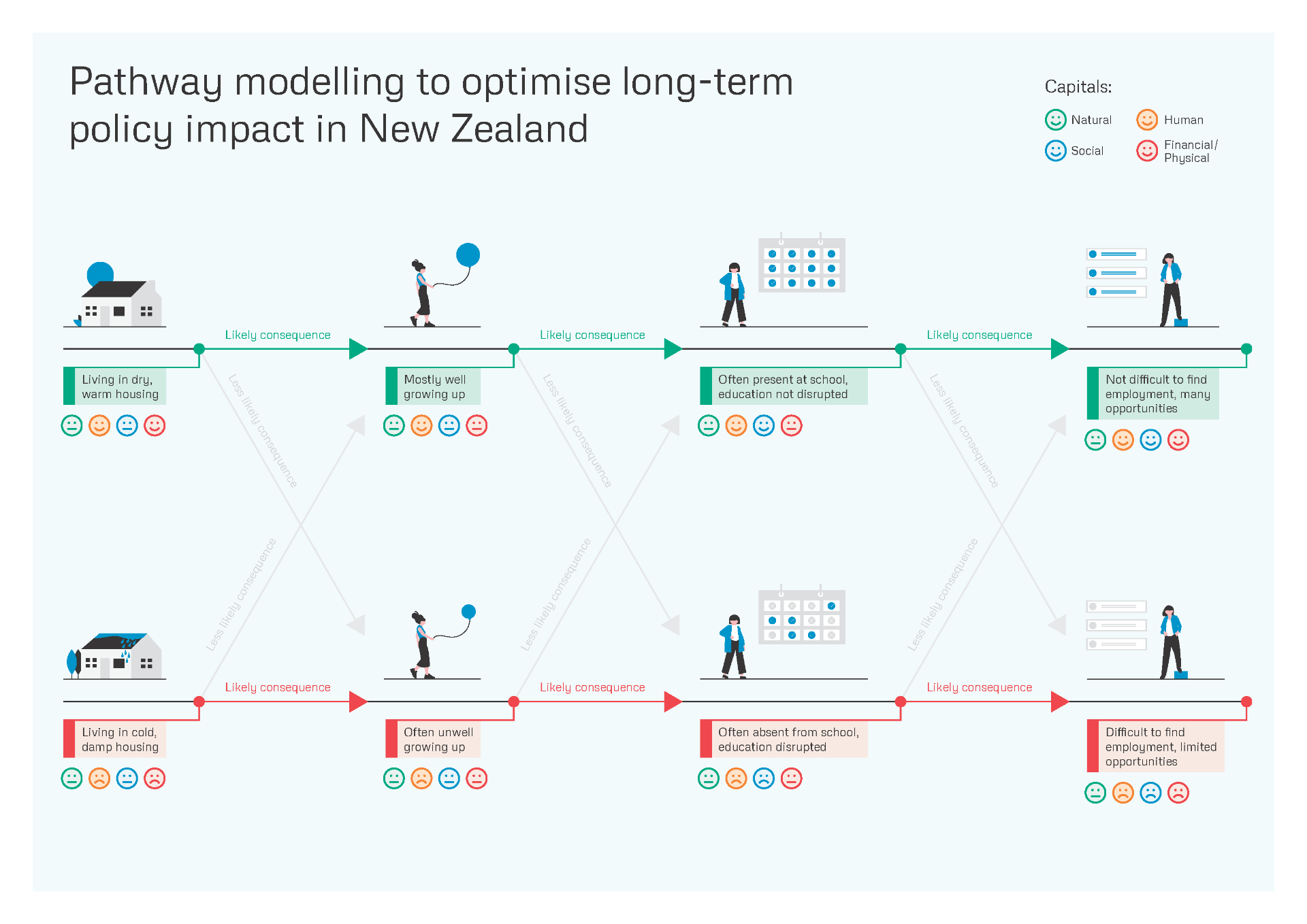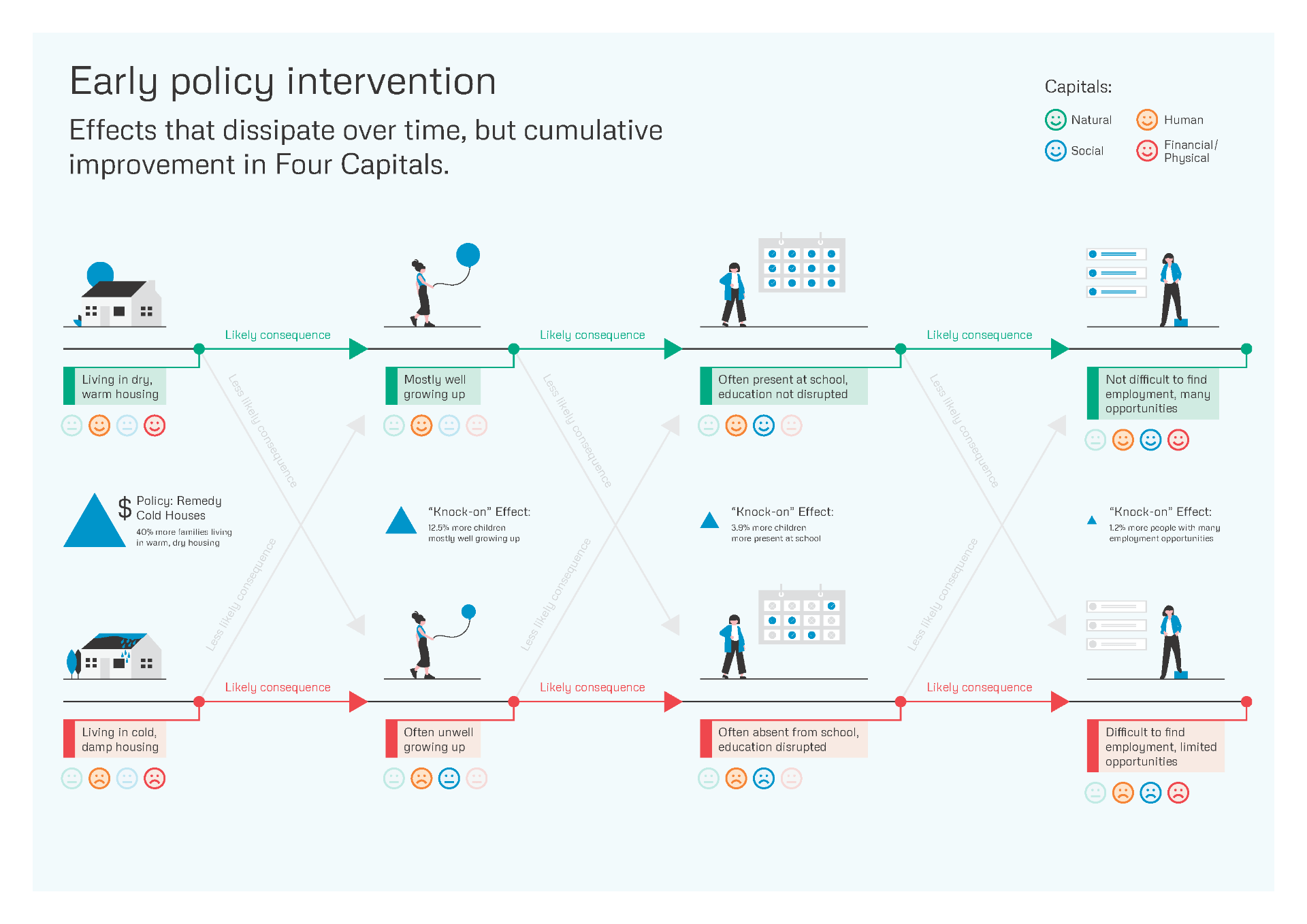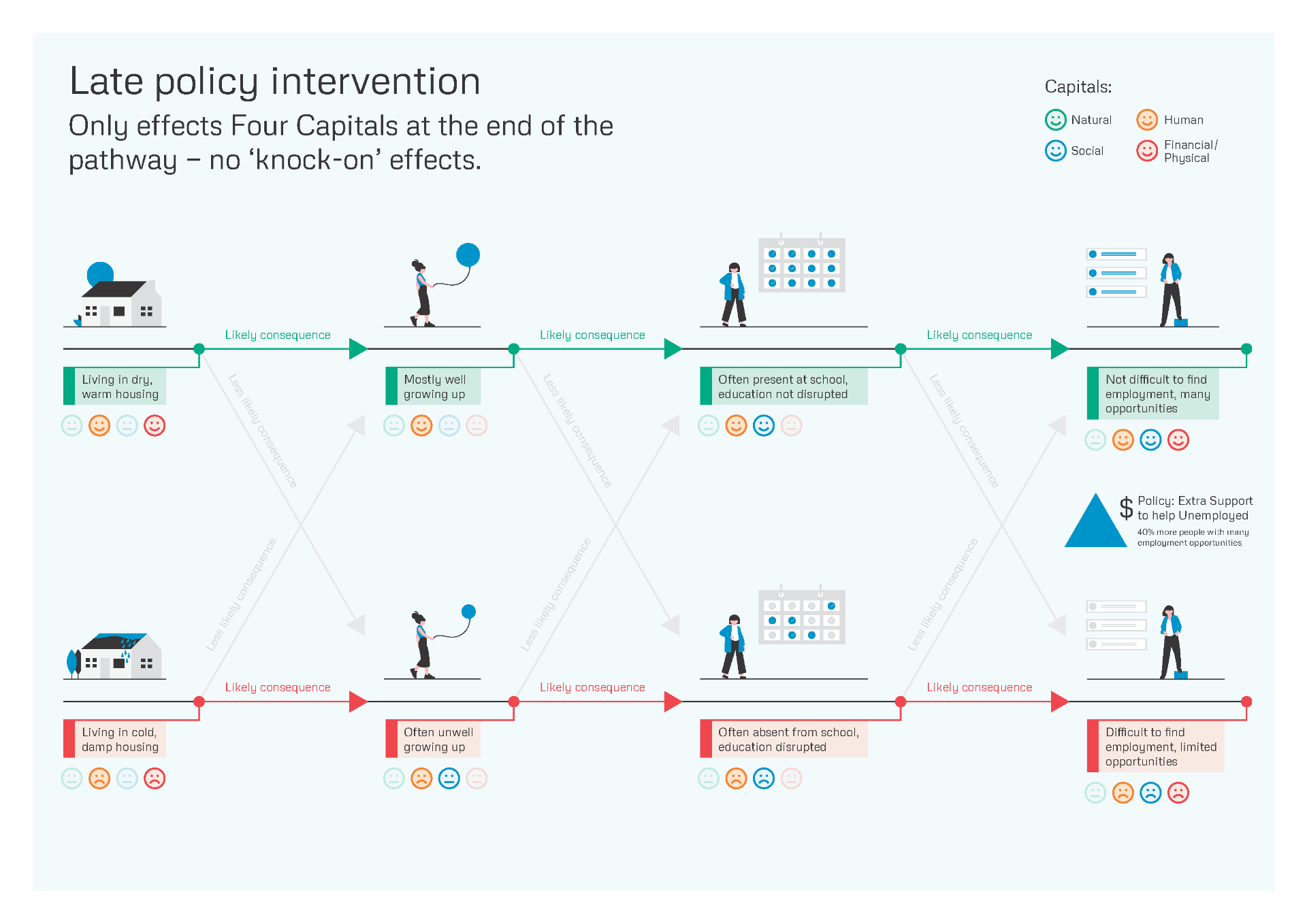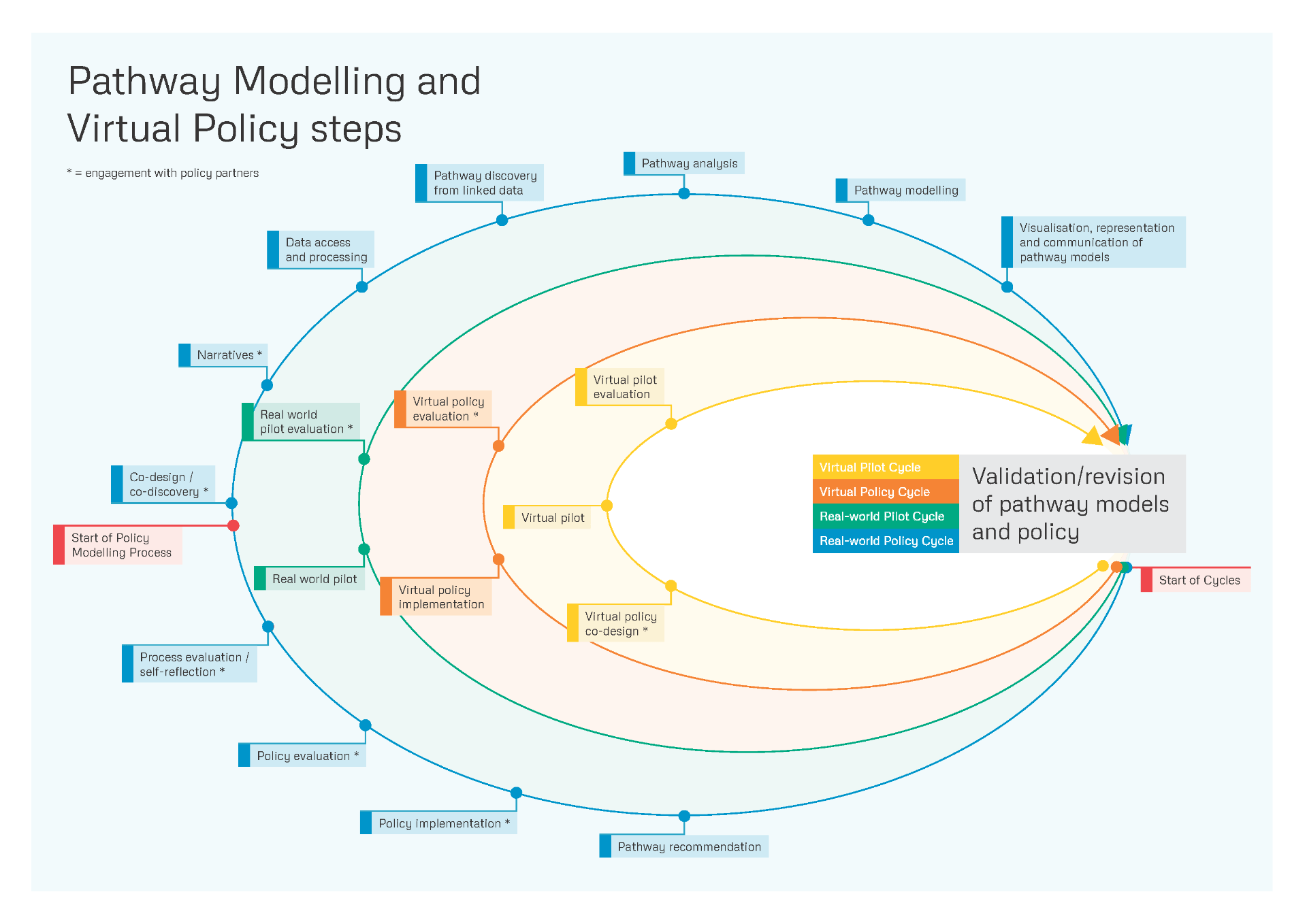Policy Planning for Wellbeing with Pathways, Trajectories, Transitions and Turning Points
Wicked problems faced by New Zealand society today include: how to reduce homelessness, improve equity, and provide housing for all New Zealanders. To tackle wicked problems, transdisciplinary approaches that provide evidence-based cross-sector policy are needed. Exploring data trajectories of citizens and residents, infrastructure and the environment and key turning points within those trajectories provides better understanding of cross-sector interactions, e.g., how providing housing will help reduce homelessness. These trajectories and turning points can be generalised into pathways and transitions so that the effect of potential policy combinations can be evaluated in a virtual New Zealand and provide better insights for policy planning.

Researchers from ORUA, the Public Policy Institute (PPI), the Centre of Methods and Policy Application in the Social Sciences (COMPASS) are working alongside researchers and policymakers from throughout New Zealand to provide advanced methods for improving policy planning.
Research Vision
The vision for this pathway modelling research for improving policy planning is summarised in this briefing from the Public Policy Institute website.
Guideline: Separate subsections for the topics below?
Guideline: Who is it for?
Guideline: How will it be used?
Our researchers
Note that all researchers are from the University of Auckland unless specified.
Research Planning Group
- Associate Professor Anna Brown (Director, Toi Āria: Design for Public Good, Massey University; Investigator, Te Pūnaha Matatini)
- Professor Jennifer Curtin (Director, PPI)
- David Kelley (Professional Teaching Fellow, University of Auckland & Massey University; Researcher, Te Pūnaha Matatini & Digital Life Institute)
- Dr Ru Nicholson (Lecturer, Department of Engineering Science)
- Dr Michael O’Sullivan (Co-Director, ORUA; Senior Lecturer, University of Auckland; Deputy Director, Te Pūnaha Matatini)
- Dr Suzanne Woodward (Associate Director Research Impact, PPI)
Wider Research Group
- Associate Professor Barry Milne (Director, COMPASS)
- Assoc Prof Cameron Walker (Co-Director, ORUA)
- Associate Prof Ilze Ziedins (Statistics)
- Dr Lara Greaves (Associate Director Policy Inc, PPI)
- Dr John Holt (Managing Director, Holt Data Science)
- Matt Law (Designer, Toi Āria: Design for Public Good, Massey University)
- Professor Matthew Parsons (Gerontology, University of Waikato)
- Professor Paul Rouse (Accounting and Finance)
Research Progress
Guideline: What we have done so far
Oranga Mahi
Oranga Mahi is a cross-agency programme based in the Ministry of Social Development (MSD) that provides cross-agency initiatives in partnership with District Health Boards (DHBs) to improve outcomes for people living with health conditions or disabilities. ORUA formed part of a team alongside Prof Matthew Parsons and Prof Paul Rouse within Oranga Mahi to analyse trajectories of people living with health conditions or disabilities across multiple agencies and evaluate how the cross-agency initiatives would affect those people. Not only do the initiatives provide improved outcomes for people living with health conditions or disabilities, but these improved outcomes result in reduced government costs so the initiatives provide cost savings in the future. By understanding the complex interactions between the initiatives (and their efficacy), the people they aim to help and government agencies provided more appropriate evaluation of the initiatives before proceeding to pilot implementations.
Research Context
Co-Design and Policy Planning
Guideline: Consider this for a reference
https://caepr.cass.anu.edu.au/sites/default/files/docs/2021/3/CAEPR_DP_no_296_2021_Dillon.pdf
Trajectories, Turning Points, Pathways and Transitions
Guideline: Refer to https://swa.govt.nz/assets/Publications/guidance/Representative-timelines-modeling-peoples-life-experiences.pdf
Guideline: Refer to the figures below



Linking Data vs Distributing Algorithms
Modelling Innovations for Policy Planning
Guideline: Refer to figure below

Dynamic Adaptive Pathways Planning
Popular approach to policy that deals with uncertainty.
Judy Lawrence, Marjolijn Haasnoot, “What it took to catalyse uptake of dynamic adaptive pathways planning to address climate change uncertainty”, Environmental Science & Policy, Volume 68, 2017, Pages 47-57, ISSN 1462-9011, https://doi.org/10.1016/j.envsci.2016.12.003.
Nicholas A. Cradock-Henry, Paula Blackett, Madeline Hall, Paul Johnstone, Edmar Teixeira, Anita Wreford, “Climate adaptation pathways for agriculture: Insights from a participatory process”, Environmental Science & Policy, Volume 107, 2020, Pages 66-79, ISSN 1462-9011, https://doi.org/10.1016/j.envsci.2020.02.020.
Get Involved!
Guideline: What we are looking for from people
